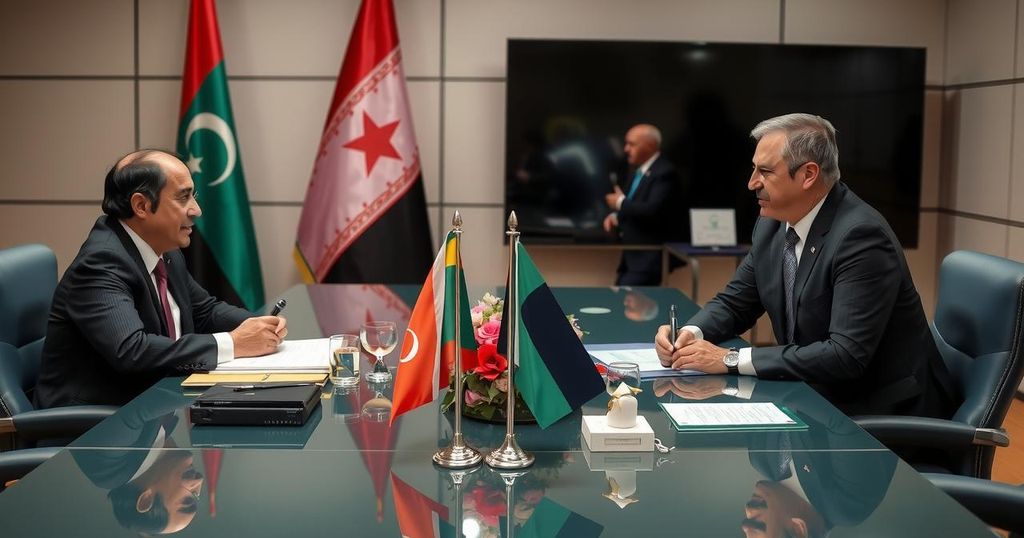A Libyan official met with Syria’s new leader to discuss cooperation on energy, migration, and diplomatic relations. The meeting reaffirmed Libya’s support for Syria during its transitional phase and highlighted the importance of addressing illegal immigration and enhancing diplomatic representation.
A senior official from Libya’s UN-recognized government engaged in discussions with Syria’s new leader, Ahmed Al-Sharaa, on various critical topics including diplomatic relations, energy cooperation, and migration concerns. Walid Ellafi, Libya’s Minister of State for Communication and Political Affairs, conveyed the Libyan government’s complete endorsement of Syria during its transitional phase. He highlighted the necessity of collaborative efforts particularly in areas of security and military concerns, as well as addressing illegal immigration which has seen many Syrians journey to Libya in search of better opportunities. Furthermore, Ellafi underscored the significance of enhancing diplomatic ties between Libya and Syria, as they aim to establish a permanent ambassadorial presence following a lengthy absence of diplomatic representation since the fall of Muammar Qaddafi in 2012.
The meeting between Libyan and Syrian officials comes in the wake of significant political transitions within Syria, particularly following the recent overthrow of President Bashar Al-Assad. Since the civil war began in 2011, many Syrians have sought refuge in Libya, often risking perilous sea journeys to Europe. The Libyan political landscape is similarly divided, consisting of a recognized government in Tripoli and a rival faction in the east led by Khalifa Haftar. This context sheds light on the necessity for cooperation between the two nations as they navigate complex migration and security challenges.
The recent meeting between Libyan and Syrian officials marks a potentially significant step in re-establishing diplomatic relations and enhancing cooperation on crucial issues, particularly concerning migration and energy. As both Libya and Syria face their respective transitional challenges, the dialogue indicates a mutual willingness to collaborate and support one another in stabilizing their regions. Continued engagement between these governments could lead to fruitful partnerships that address shared concerns.
Original Source: www.arabnews.com






